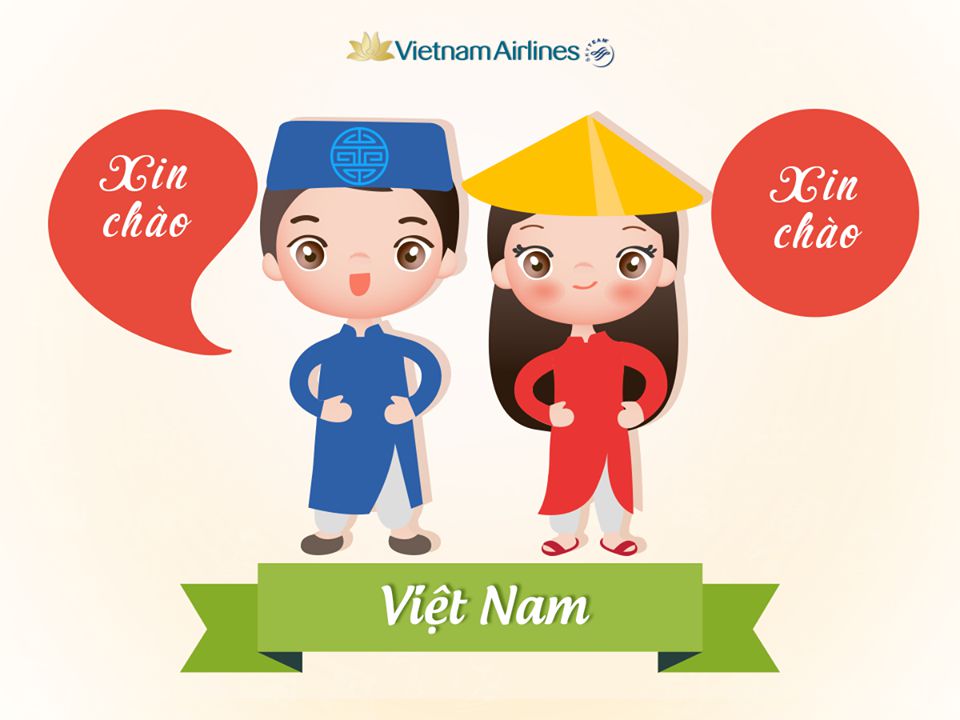[Audio] Hi & Hello in Vietnamese. How to say Hello in Vietnamese?
Hi everyone! It’s very long time from my last article. I was very busy with my job, my trips and my family. But now I’m back (with better English, I guess) and going to make a series of how-to-say articles, that guides how to say simple words and phrases in Vietnamese, such as Hello, Thank you, How are you, Please, Yes or No,… I think these are very important words to communicate when you visit Vietnam. So to begin, this article I will teach how to say Hello in Vietnamese. Let’s get started!

How do you say Hello or Hi in Vietnamese?
In Vietnam, there’s no difference between Hello and Hi. Both mean “Xin Chào”:
Again and slower:
The word “xin chào” can be used in any time of day. Vietnamese people basically don’t use the words like morning, afternoon, evening in greeting. In most cases, we only use the word “xin chào” for both formal and informal situations.
Advanced “hello” (if you want to know)
Saying “hello” in Vietnamese seems to be very easy, isn’t it? Yes, if you’re a foreigner and just visting Vietnam for few weeks. But if you learn our culture deeper (to work in Vietnam, or marry a Vietnamese girl for example), you will see greeting in Vietnamese is very complicated and it can make you crazy. Saying “xin chào” to everyone, especially to someone many years older than you, could be very disrespectful.
In Vietnamese culture, age between two people is very very important in communicating, and it’s also decide how do you say Hello. Here are some cases:
– Chào anh: use for greeting a man several years older
– Chào chị: greeting a woman several years older
– Chào em: greeting a man or woman several years younger
– Chào chú: greeting a man many years older than you, but younger than your father or mother
– Chào cô: greeting a woman many years older than you, but younger than your father or mother
– Chào bác: greeting a man or woman many years older than you, and also older than your father and mother
Of course you can’t ask “how old are you” to everyone you talk with, so you have to look at their face and guess the age. Did these make you crazy? But that’s not all, there are many other cases (about 10) if you learn deeper.
When you want to marry a Vietnamese, everything will be much “interesting”, there are many other cases. Sometime, you have to say “chào anh” or “chào chị” even when he or she is much younger. Or sometime, you have say “chào chú” even when he is younger than you, and he’s also not your father’s brother, no one can have enough patience to explain why you have to say that. Greeting when you’re a member of Vietnamese family is very difficult, even with me, it’s not easy too. I had to take many time to learn, but still can’t remember all.
This may seem funny to you, a foreigner, and sometime, I also wish greeting in Vietnam is only “hello” and “hi”. But anyway, it’s my culture, and I love it.
Conclusion
Greeting in Vietnamese may be very complicated, but you don’t need to worry. No one will be angry with you, a foreigner who’s trying to say “hello” in their language, even that person is older than your grandparent. So just feel free to say “xin chào” to everyone!
For more unique things to do, give these articles a read:
How to Get Off The Beaten Track in Hoi An
History of Hoi An: From the Champa Kingdom Till Now
Enjoyed this article and want more information on fun things to do, see and eat in Vietnam? Follow us at 4U Trip Blog.
